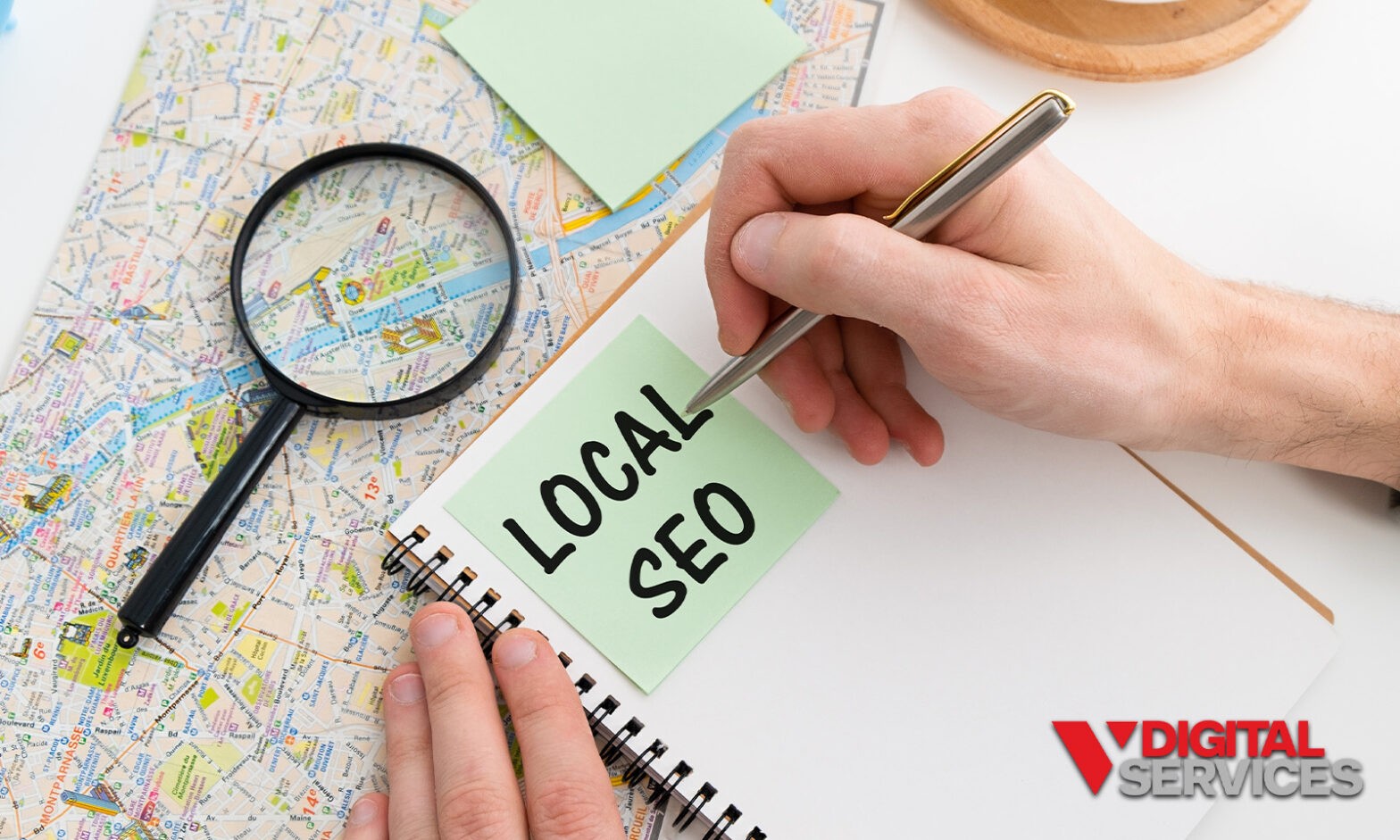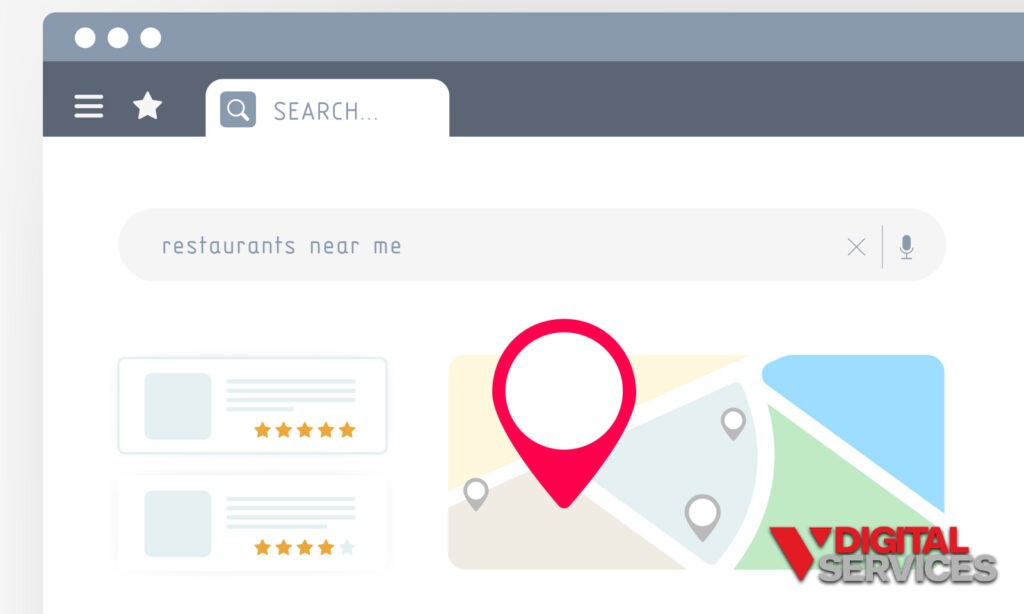Tapping into the power of local SEO is like acquiring the secret weapon that propels your business into the heart of your local community. Whether it’s a brick-and-mortar store, a restaurant, or a boutique, local SEO marketing has the potential to influence your business’s online visibility significantly.
In this in-depth guide, we’re going to walk you through the nuances of local SEO, explain its importance, and offer real, actionable tips to optimize your strategy.
What is Local SEO?
Local SEO is a targeted digital marketing strategy that businesses use to reach potential customers in their immediate geographic area. By optimizing their online presence for local searches, businesses can connect with consumers who are actively seeking their products or services in a specific location.
This process often involves using geo-specific keywords, optimizing Google Business Profile profiles, gathering customer reviews, and listing on local directories.
Why Local SEO Matters for Your Business
Local SEO has the potential to act as a powerful catalyst for your business’s growth. Here are just some of the benefits you can reap with a strategic approach to local SEO:
- Boost Local Visibility: Local SEO is pivotal in maximizing your online visibility in local search results and Google Maps. This increased exposure can drive more organic foot traffic and website visits, culminating in higher sales.
- Targeted Marketing: Local SEO narrows down your marketing efforts to reach potential customers in your immediate vicinity. This targeted approach enables you to connect with consumers who are most likely to become loyal customers, thereby improving conversion rates.
- Stand Out in Local Listings: A robust local SEO strategy can help your business dominate local listings, making it easier for customers to find and choose your business over competitors.
- Build Local Reputation: Positive reviews and high rankings in local search results can solidify your business’s reputation in the community, facilitating trust and credibility.
- Competitive Advantage: Leveraging local SEO can give your business a competitive edge, allowing you to outrank larger, more established businesses in local search results.
Ultimately, you must pay attention to your local SEO strategy – it’s one of the foundational marketing elements that will bring people into your business.
Practical Tips to Elevate Your Local SEO Strategy
To truly thrive in local search, a multi-faceted approach is a must. Let’s break down some of the top ways to strengthen your local business SEO, covering both common and lesser-known tips.
1. Optimize Your Google Business Profile Profile
Google Business Profile (GBP) serves as your business’s online storefront on the world’s most popular search engine.
Start by claiming your business listing. Fill out every possible field in your GBP profile – business name, address, phone number, website, business hours, categories, services, products, and attributes. These details help Google better understand your business and match you with relevant local searches.
Upload high-quality photos of your premises, staff, and products or services. Regularly update your profile with new photos and posts to keep it fresh and engaging.
One underutilized yet highly effective feature of GBP is the Q&A section. This allows you to directly answer commonly asked questions from potential customers. Stay proactive in this area to improve engagement and conversions.
Your GBP is not a “one and done” task; rather, you should consistently check up on it to make sure it is accurate and well-rounded.
2. Earn More Customer Reviews
Online reviews are a crucial part of local SEO as they impact both your rankings and conversion rates.
Encourage your customers to write reviews on various platforms, not just Google. After a purchase or service, send a gentle reminder email or text message thanking them for their business and inviting them to share their experience.
Reacting to reviews is just as important as accumulating them. Respond promptly and professionally to every review, be it a glowing endorsement or a complaint. This public interaction shows your commitment to customer satisfaction and gives you a chance to demonstrate your brand’s personality.
3. Implement Local Keyword Optimization
Localizing your keyword strategy can significantly improve your visibility in local search.
Identify local keywords by adding geo-modifiers to your core keywords. For instance, instead of optimizing for “organic grocery store,” you might optimize for “organic grocery store in Phoenix.” Use these keywords in your meta titles, descriptions, headers, URLs, and content body.
Consider the rise of voice searches as well. With the proliferation of digital assistants, searches have become more conversational and localized. For example, someone might ask, “Where’s the nearest organic grocery store?” Adjust your content to match these longer, more specific queries.
4. Work on Local Link Building
Local link-building establishes your credibility within your community and solidifies your stature in the eyes of search engines.
Start by building relationships within your local community. Sponsor a local event or a youth sports team, which typically results in a mention or a link on their website. Partnerships or collaborations with other local businesses can also earn you valuable backlinks.
Local bloggers, influencers, and journalists are great sources for backlinks too. Offer to write a guest post for a local blog or invite an influencer for a special tour of your business. For journalists, consider sending press releases about noteworthy happenings in your business.
5. Leverage Local Business Directories
Popular directories like Yelp, Bing Places, Yellow Pages, and niche-specific directories can boost your local visibility.
Ensure your business information is accurate and consistent across all directories. Any discrepancies in your NAP (name, address, phone number) details can confuse search engines and negatively impact your rankings. If you relocate or change phone numbers, update these changes across all directories promptly.
Consider the reviews on these platforms too. Encourage satisfied customers to leave a review, and make it a habit to respond to all reviews, be they positive or negative.
6. Prioritize Mobile Optimization
Optimizing your website for mobile devices is a non-negotiable requirement as mobile searches continue to grow.
The best solution is a responsive design that automatically adjusts your site’s layout depending on the device, ensuring a seamless user experience, whether viewed on a desktop, tablet, or mobile phone. Page load speed is another critical factor with Google’s mobile-first indexing as a slow-loading mobile site can harm your rankings.
7. Use Structured Data Markup
Structured data markup, also known as schema markup, is a type of code that makes it easier for search engines to understand your site’s content. It can help search engines better understand your business’s location, hours, reviews, and more.
8. Tailor Your Content Marketing for Local SEO
Crafting high-quality, locally-focused content can offer an edge in the local search landscape.
Consider writing about topics that resonate with your local audience, whether a blog post about a local festival, a how-to guide relevant to your industry and tailored to your locale, or even a series of posts highlighting local landmarks or businesses.
Don’t forget to optimize these pieces of content with local keywords. For instance, if you run a bakery in Denver and write a blog post about gluten-free baking, make sure to include terms like “gluten-free bakery in Denver” or “Denver’s best gluten-free bread.”
9. Manage Your Online Reputation
Your online reputation can directly influence local SEO. Engage with your audience on social media platforms, promptly respond to online inquiries, and maintain a positive online presence. A solid online reputation management strategy can also help mitigate negative reviews and promote positive experiences shared by your customers.
10. Leverage Social Media for Local SEO
While social signals aren’t direct ranking factors, they do play a part in your local SEO strategy.
Social media platforms allow you to connect with your local community more personally. Share posts about local events you’re participating in, feature customer stories, or highlight your team’s local volunteer efforts. This localized content can resonate strongly with your local audience.
Also, make good use of local hashtags on platforms like Instagram and Twitter to boost your content’s visibility. Encourage customers to check in, share photos, or leave a review on platforms like Facebook. The more your local audience engages with your social media content, the more likely it is that others will discover your business.
11. Tracking and Measuring Your Local SEO Performance
Be sure to utilize tools like Google Analytics, Google Search Console, and SEO-specific tools like SEMRush or Moz to track your website traffic, rankings, and conversions. By closely monitoring your performance, you can spot any issues or opportunities early on, helping you fine-tune your local SEO strategy as needed.
Common Local SEO Mistakes to Avoid
When you’re honing in on a solid local SEO plan, avoiding certain missteps is just as important as implementing the right strategies.
Here are common mistakes to watch out for:
- Inconsistent NAP Information: Inconsistent name, address, and phone number information across online platforms can lead to ranking penalties from search engines. Always double-check your NAP information for accuracy and consistency.
- Ignoring Customer Reviews: Not responding to customer reviews can negatively impact your reputation and local SEO. Make it a priority to respond to each review in a timely and professional manner. Address negative feedback constructively and take necessary steps to rectify the situation.
- Neglecting Local Content: Local content is a powerful tool for attracting local customers. Regularly create locally-oriented content, such as blogs about local events, community activities, or local market trends. This can significantly boost your visibility in local search results.
- Overlooking Mobile Optimization: Given that a significant amount of local searches come from mobile devices, ignoring mobile optimization can greatly affect your local search rankings. Invest in a mobile-responsive website design, optimize page speed, and ensure easy navigation to provide a superior mobile user experience.
Empower Your Business with Local SEO: V Digital Services at Your Service
Local SEO is no longer a luxury; it’s a necessity for businesses striving to achieve growth and profitability. The journey to optimizing your local SEO strategy can be overwhelming, but you don’t have to do it alone.
V Digital Services is here to guide you every step of the way, with our experience, expertise, and commitment to customized solutions. Our team of SEO strategists is prepared to create a tailored strategy based on your needs and goals, taking action that delivers measurable results for your business.
For more information about how to use local SEO to grow your business, contact V Digital Services today!
Photo Credits: BestForBest






 PREVIOUS
PREVIOUS